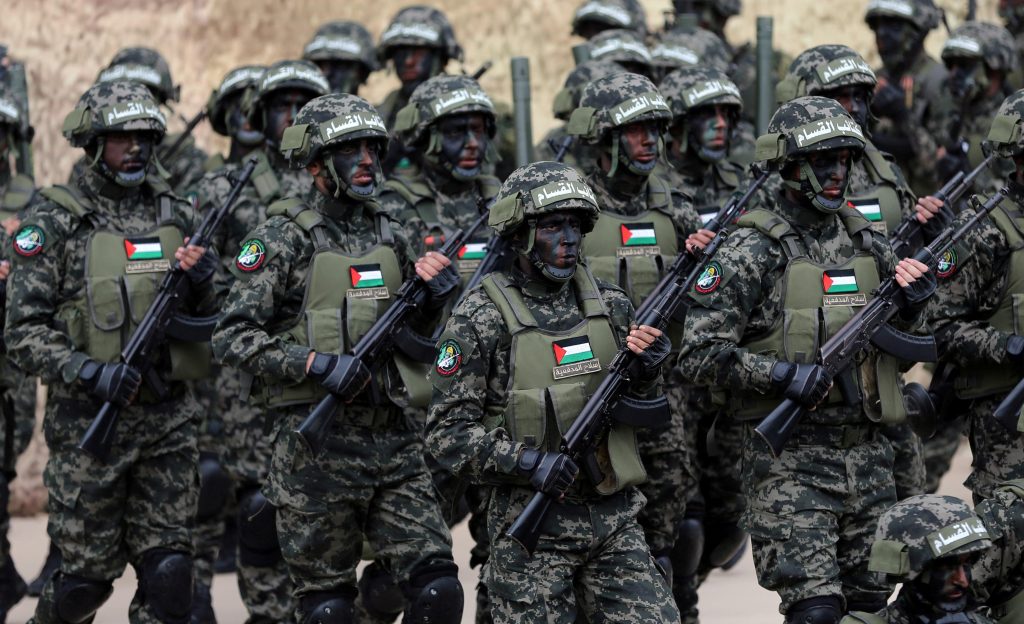Watan-In 2021, Hamas was classified as a terrorist organization in the UK and banned under the Terrorism Act of 2000, which initially only applied to its military wing. Under this ban, any support or affiliation with the movement is considered a criminal offense, punishable by up to 14 years in prison. This move restricted discussions on the Palestinian issue in the British public sphere, and many activists were arrested for wearing symbols deemed supportive of terrorism.
On April 9, 2025, Hamas initiated an unprecedented legal action in the UK, seeking to have its name removed from the UK’s terrorism list. The movement employed a team of lawyers from Riverway Law and independent lawyers in London to formally present the request to British Home Secretary Yvette Cooper. How did Hamas present its case? How did it respond to accusations of antisemitism? What justification did it provide for the October 7th attack? Did it support the one-state solution? And what was the reaction from the British political scene?
Hamas argued in its legal submission that it does not oppose Judaism as a religion or Jews based on their faith but opposes Zionism as a political project. Hamas identified itself as a legitimate national liberation movement for the Palestinian people and provided a historical context for the Palestinian cause, which it sees as the struggle of a people dispossessed of their land. The movement denied being a terrorist organization, asking instead to be recognized as a resistance group fighting for self-determination.

The legal case referenced Britain’s international obligations, asserting that labeling Hamas as a terrorist organization contradicts the UK’s commitment to preventing genocide, crimes against humanity, and ending the unlawful occupation of Palestinian territories. Hamas argued that it is currently the only force resisting these crimes, and thus labeling it as a terrorist group would implicitly support the perpetrators of these crimes.
Hamas framed itself in the context of other anti-colonial resistance movements, like the African National Congress and the Irish Republican Army, noting that their struggles were recognized as legitimate resistance to imperialism and colonialism.
Regarding accusations of antisemitism, Hamas emphasized that it does not target Jews but focuses on opposing the political Zionist movement. It stated that the October 7th “Al-Aqsa Flood” operation was a military maneuver targeting Israeli soldiers, not civilians, and that strict orders had been given not to harm women, children, or civilians. It acknowledged individual breaches and assured it had internal mechanisms for accountability and was open to cooperating with international investigations.
Hamas also avoided explicitly endorsing the one-state solution but emphasized the need for a sovereign Palestinian state over all of historic Palestine, positioning itself as part of a broader anti-colonial struggle alongside other movements that sought equal rights for all citizens within democratic states.
Politically, the UK’s response was overwhelmingly negative. Both the Labour Party and the Conservative Party rejected any possibility of Hamas being removed from the terrorist list. Foreign Secretary David Lammy expressed in the Jewish Chronicle that Hamas’ status as a prohibited organization would not change.
Former Home Secretary Priti Patel strongly condemned the legal challenge, describing Hamas as a “barbaric” terrorist organization supported by Iran, responsible for killing civilians, including British citizens. Robert Jenrick, a former Minister of State, also expressed outrage, even filing complaints against the law firm representing Hamas.
This legal action marks a new chapter in the narrative battle over the Palestinian issue, challenging political classifications that have long silenced Palestinian voices in the Western public domain. The significance of this legal move extends beyond the potential removal of Hamas from the terrorist list; it touches on the broader need for a re-examination of terrorism designations, which have become tools of suppression by Western regimes.
-
-
-
-
-
-
